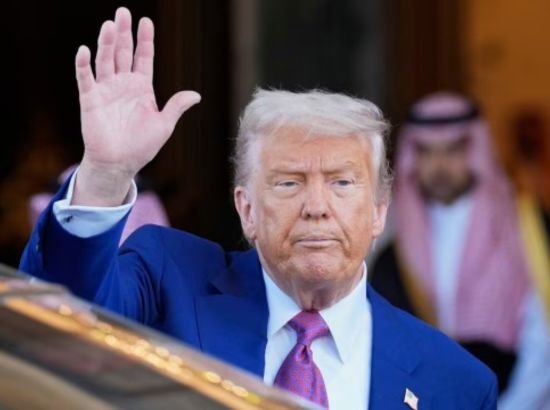
Trump lifts Syria sanctions ahead of a scheduled meeting with Syria’s new interim leader, Ahmed al-Sharaa, signaling a drastic shift in U.S. foreign policy in the region.
Celebrations erupted across Damascus after U.S. President Donald Trump announced the decision during a business forum in Riyadh, Saudi Arabia. Crowds were seen cheering, dancing, and firing gunshots into the air in celebration. The move paves the way for Syria to regain access to foreign financing and humanitarian aid—previously blocked under strict U.S. sanctions.
The White House confirmed that Trump will “say hello” to Al-Sharaa during his Middle East tour, with the meeting expected to take place in Saudi Arabia on Wednesday. Trump said Syria now has “a chance at greatness” and described the moment as “their time to shine.”
Syrian Foreign Minister Asaad al-Shaibani welcomed the move, calling it a “pivotal turning point” for a country devastated by years of war. He emphasized that Syria was entering a new era of “stability, self-sufficiency, and reconstruction.”
Since the fall of Bashar al-Assad’s regime in December, Syria’s new government has repeatedly called for the lifting of sanctions. Assad’s regime left 90% of the population below the poverty line.
In earlier interviews, Al-Sharaa stated Syria posed “no threat to the world” and pushed for Hayat Tahrir al-Sham (HTS)—the group that toppled Assad—to be removed from international terrorist lists. Although designated as a terrorist organization by the UN and Western powers, HTS claims to have severed ties with al-Qaeda in 2016.
During a joint press conference with French President Emmanuel Macron, Al-Sharaa reiterated that sanctions targeted the “previous regime” and should no longer apply.
He also pledged to protect minority groups, including Alawites and Druze, despite rising concerns. Tensions have flared following deadly clashes between new Syrian security forces and remnants of Assad loyalists. Several Alawite families were killed during unrest in March, sparking fear across minority communities.
The decision to lift sanctions follows requests from Saudi Arabia’s Crown Prince Mohammed Bin Salman and Turkish President Tayyip Erdogan. “Oh, what I do for the Crown Prince,” Trump quipped, adding, “I like him too much.”
During Trump’s Middle East tour, he also met with Bin Salman to announce a $142 billion arms deal. Former U.S. ambassador to Syria Robert Ford praised the policy shift, calling it “vital” for Syria’s recovery.
Ford noted that lifting sanctions will unlock crucial foreign investments and aid, especially from Gulf nations and humanitarian groups.
Trump’s trip continues with visits to Qatar and the United Arab Emirates.